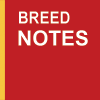KC confirms position on German Shepherds
The Kennel Club has made it clear that the single most important issue currently facing the German Shepherd Dog as a breed is the soundness of hindquarters and hocks and, as reported in last week’s issue, until this issue of conformation and movement is addressed as the major focal point for action, the KC has stated that it will be difficult to progress on other matters.
However, the KC insists that if breed representatives accept that fundamental soundness in hindquarters and hocks must be improved, then it is ready and very willing to address the other issues raised by groups such as the German Shepherd Dog Partnership. The Partnership is now publicly acknowledging the lack of soundness in the breed, particularly as it has not done so up to now.
Now that the Partnership is openly acknowledging unsoundness in the breed, the Kennel Club is urging it to take the action that it undertook to do in August 2009, and make soundness in hocks and hindquarters a cornerstone in judges’ training. It had been suggested that a conference or seminar be held to address this with all breed judges, but no progress has been made on staging this to date.
Following the 31st March deadline, the Kennel Club will progress this issue with all those clubs who have signed the Undertaking. As a priority, a judges’ training programme on the soundness issue will be established and the Kennel Club will continue to evaluate judges to ensure that the fundamental issue of soundness is of paramount importance in the ring.
Discussion
In addition to judges’ training and evaluation, the Kennel Club will also seek to revisit a number of other issues that have been in abeyance whilsts waiting for the breed to accept and take action on the issue of soundness. Following the 31st March it is therefore the intention to arrange a meeting with those Clubs which sign the Undertaking, to enable these issues to be revisited. For example, given that the duty towards responsible breeding lies with breeders, inclusion of health tests specific to the GSD in the Accredited Breeders Scheme is highly desirable, but is still awaiting discussion. Other issues such as reviewing the restrictions placed on the registration of non-standard coat colours of GSDs, along with various other topics, are also to be explored with the breed clubs.
The Kennel Club has acknowledged that it is aware aware that there has been a great deal of speculation and misinformation about the consequences of signing the Undertaking, and has such has answered the following questions.
Unsound hocks have no known related health diseases, so many in the breed are asking why is the KC so exercised about this? The KC is adamant that suggest that a dog does not have a health issue when it cannot walk properly because of poor hocks, is ‘patently nonsense.’ The KC’s Fit for Function campaign states that ‘all dogs must be able to see, breathe, and walk freely and be free from pain, irritation or discomfort’. The fundamental ability to walk soundly is a basic quality of life issue for any animal.
In the case of a club’s secretary and chairman signing the Undertaking on behalf of the club and subsequently being replaced as officers then it would be understood that the club officials are signing on behalf of the club and its elected committee and not as private individuals.
Judges
clubs would not be penalised for a judge placing an unsound dog. If the club has signed the undertaking and the judges does place an unsound dog, then the norman procedure would apply, and the club must report the matter to the Kennel Club within seven days of the show. the KC would then investigate the judge’s conduct.
Neither will clubs be penalised for double handling at shows, as long as the Escalation Policy has been followed through every stage by the club.
In the case of CC allocation, many have asked whether in losing its CC status, a club would also lose its Obedience and Working Trial Certificates. The KC has said that it isn’t possible to prejudge this situation, but clearly if a club refused to work with the Kennel Club on one activity it would certainly raise questions about the club’s relationship with the KC in other areas.
Open shows appear to be safe at the moment, and the KC has stated that to undertaking only relates to the allocation of CCs. In the statement, it says: ‘The clauses in the Undertaking on health and welfare and double handling relate to all events insofar as they are part of KC Show Regulations. All that is being asked is that clubs work with us on the soundness of the breed and in holding events in line with KC regulations. Clubs and individuals cannot pick and choose which regulations to abide by and which to ignore. If there is a breach of regulations at an open show, or a judge rewards an unsound dog, it is expected that clubs report the matter to the KC, as is the case now.’
As the allocation for CCs is done on an annual basis and on the prevailing circumstances for each breed, the Committee will consider its options for unallocated Challenge Certificates following the March 31 deadline. It may choose to reallocate the CCs to breed clubs in the existing rotation that have signed the Undertaking; it may choose to reallocate CCs to general canine societies; or it may choose not to allocate them at all meaning fewer opportunities for the breed at Championship level.
Asked where the KC stands on SV/WUSV events, the KC said that it has worked with the GSD community to enable the annual British Sieger Show to everyone’s satisfaction and that requests of a similar nature would be considered. What is being asked is that, as a matter of simple courtesy, clubs should work with their UK governing body to gain support for the organising of any such events.
What do you think?
Send your opinion of this story below












